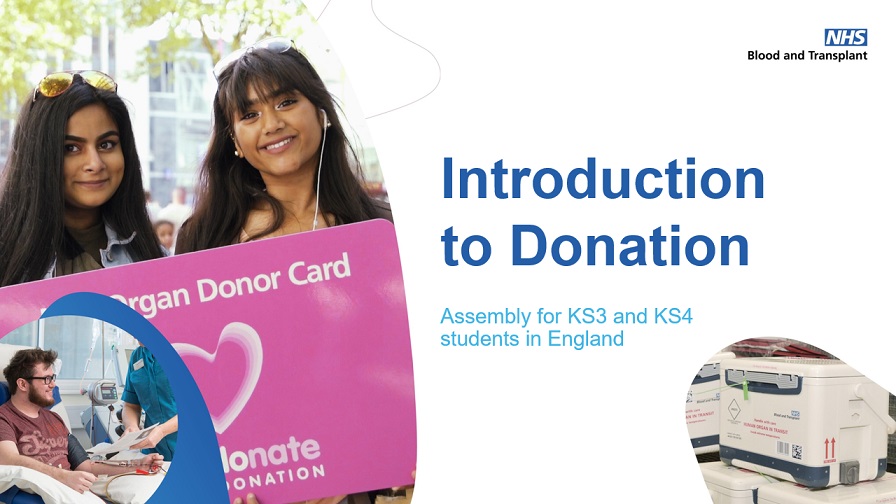Introduction to Donation: KS3 and KS4 assembly presentation
Before you continue...
This presentation covers a sensitive topic. It is essential that you read our guide to creating a safe learning environment document before delivering this session.
Introduce students to the concept of blood, organ and stem cell donation

Ages: KS3 and KS4 students (ages 11-16) in England
Subjects: PSHE / RSHE
Aim: Developed in collaboration with Anthony Nolan and with the support of practising teachers, this assembly presentation explores the general concept of blood, organ and stem cell donation, and raises awareness of the need for more donors in England. The accompanying film is featured below.
Curriculum links
This resource is linked to the national curriculum in England.
PSHE Association Programme of Study - KS4
Relationship values
R9 - To recognise, clarify and if necessary challenge their own values and understand how their values influence their decisions, goals and behaviours.
Health-related decisions
H14 - About the health services available to people; strategies to become
a confident user of the NHS and other health services.
H15 - The purpose of blood, organ and stem cell donation for individuals
and society.
Relationships and Sex Education and Health Education (RSHE)
By the end of secondary school, pupils should "know about the science
relating to blood, organ and stem cell donation".
Citizenship
KS3
The roles played by public institutions and voluntary groups in society, and
the ways in which citizens work together to improve their communities,
including opportunities to participate in school-based activities.
KS4
The different ways in which a citizen can contribute to the improvement of
his or her community, to include the opportunity to participate actively in
community volunteering, as well as other forms of responsible activity.
Want us to present at your school?
You can request a trained NHS Blood and Transplant speaker to present the Introduction to Donation content at your school assembly.
